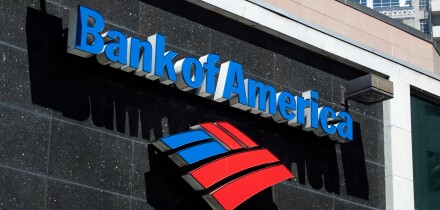
A strong team and a diversified business again provided the foundations for JPMorgan’s second SSA bond house award in a row, says Ioannis Rallis, head of sovereigns, supranationals and agencies DCM. “Whatever happens in the market, we seem to have the people and the platform that can respond and capitalise,” he says. “We’ve been able to adapt and serve our clients despite the challenges of the pandemic.”
JPMorgan’s long-term investment in primary dealerships and the wider European government bond franchise really started to pay off over the last 12 to 18 months. Sovereign issuers have been leaning heavily on their primary dealers amid an unprecedented surge in funding requirements, and in return did more funding than ever in syndications alongside their usual auction programmes.
In most years, for instance, Germany never brings a syndicated deal but over the last year has turned to the format three times. In total, European sovereigns issued €338bn via syndications in 2020, and have already issued some €172bn in 2021. Since 2015, annual issuance has not surpassed €150bn, according to Dealogic data.
“It really played to our strengths,” says Rallis. “All types of SSA issuers printed more and we got our fair share, but on the sovereign side particularly we outperformed by a big margin because of the investments we’d made in the business.”
The debut of Germany in the green bond market in September 2020 was a clear highlight, particularly with its twin bond concept of pairing green issuance with a more liquid conventional bond.
“They introduced a new concept in a very smooth and confident way that has proven many people wrong. They heard what was said but they stuck to their beliefs, went through with it and it was a huge success.”
One aspect that raised a few eyebrows was the agnosticism Germany shows to the green ‘shade’ of the investors bidding for the bonds. “They pay no attention to whether it is a green investor or a non-green investor, so long as they come into the book and contribute to Germany’s green mission.
“I think that’s a fascinating concept and actually a clear and logical concept that makes the whole process a lot less complicated and lengthy.”
Other sovereign highlights during the awards period for Rallis included deals for Italy and Portugal, but the trend that JPMorgan was perhaps most associated with was the run of issuance in the ultra-long end of the curve in the first quarter of 2021.
“We’ve always been recognised as strong in the ultra-long end, both in auctions where we take the largest market share, but also in secondary flows so getting the key investors involved in the primary market this year really played to our strengths,” says Rallis.
The bank was on all of the 50 year trades that hit the market while the window was open — for Austria, Belgium, France, Italy and Spain which raised a combined €28bn — as well as 30 year deals for Greece and Portugal.
The European Union’s Support to mitigate Unemployment Risks in an Emergency (SURE) programme was also among JPMorgan’s most prestigious mandates as it fought its way into the dealer group for the €8.5bn 15 year outing in November.
Back in the summer of 2020, many SSA bankers were vocal in expressing concerns about the €100bn of issuance that SURE would bring, worried that it would crowd out investors from the traditional SSA names. That soon changed, though.
“Many of us have again been proven wrong to have been afraid of the supply and potential widening,” says Rallis. “It’s benefited the whole sector. There’s been far more of a crowding-in effect than crowding out and SURE has attracted a lot more investors into deals because they offer more size and liquidity.
“The next stage now will be to see if that still holds for Next Generation EU.”






